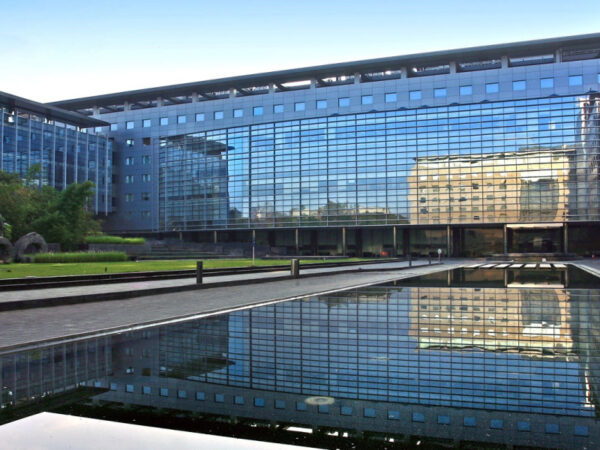Material Cost Meaning is a cornerstone concept in the realm of business operations, serving as a compass for organisations navigating the intricate landscape of production economics. In essence, material cost encapsulates the financial outlay associated with procuring raw materials essential for manufacturing goods or delivering services. Understanding the intricacies of material cost meaning is pivotal for businesses seeking to optimise resource allocation, enhance cost efficiency, and bolster profitability. In this comprehensive guide, we embark on a journey to unravel the layers of material cost meaning, shedding light on its significance, components, and strategic implications. Join us as we delve into the heart of material cost meaning, unlocking insights to empower informed decision-making and drive sustainable business growth.
Exploring the Essence of Material Cost Meaning
Material cost meaning represents the expenses incurred in acquiring the raw materials essential for production. It encompasses the price of raw materials themselves, transportation costs, handling fees, and any other expenses directly associated with obtaining the materials required for manufacturing.
Components Contributing to Material Cost Meaning
Material cost meaning consists of various components, including direct materials, indirect materials, and overhead costs related to materials management. Understanding these components is crucial for accurate analysis and effective cost management.
Significance of Analysing Material Cost Meaning
Analysing material cost meaning provides valuable insights into expenditure patterns, helps identify cost-saving opportunities, and enables better decision-making regarding sourcing, inventory management, and pricing strategies.
Strategies for Controlling Material Cost Meaning
Implementing effective strategies for controlling material cost meaning is essential for improving profitability. These may include negotiating better deals with suppliers, optimising inventory levels, standardising materials, and investing in technology for enhanced efficiency.
Impact of Material Cost Meaning on Pricing
Material cost meaning significantly influences pricing decisions. Understanding the relationship between material cost meaning and pricing ensures that products are priced competitively while maintaining adequate profit margins to sustain business operations.
Material Cost Meaning vs. Total Cost: Understanding the Difference
While material-cost meaning focuses solely on expenses related to raw materials, total cost encompasses additional factors such as labour, overhead, and distribution costs. Distinguishing between these concepts is crucial for accurate financial analysis and cost management.
Tools and Techniques for Calculating Material Cost Meaning
Various tools and techniques are available for calculating material-cost meaning, including cost estimation software, activity-based costing, and standard costing methods. Leveraging these tools enables businesses to derive accurate cost projections and make informed decisions.
Optimising Material Cost Meaning: Best Practices
Optimising material-cost meaning involves implementing best practices such as supplier consolidation, just-in-time inventory management, value engineering, and waste reduction initiatives. These practices aim to minimise waste, enhance efficiency, and maximise cost-effectiveness.
Case Studies: Successful Material Cost Meaning Management
Examining real-world case studies of successful material-cost meaning management initiatives provides valuable insights and practical strategies that businesses can adapt to their own operations.
Future Trends in Material Cost Meaning Management
As technology advances and market dynamics evolve, material-cost meaning management practices continue to undergo transformation. Exploring emerging trends such as sustainable sourcing, digitalization, and predictive analytics offers a glimpse into the future of material cost meaning management.
Conclusion
Material cost is a fundamental aspect of production economics, influencing both operational efficiency and profitability. By understanding the intricacies of material cost, implementing effective cost control measures, and staying abreast of emerging trends, businesses can unlock the power behind expenses and position themselves for sustained success in a competitive marketplace.
FAQs
Q1. What factors contribute to material costs in manufacturing?
Material costs in manufacturing are influenced by various factors, including the price of raw materials, transportation costs, tariffs or taxes, exchange rates (for imported materials), supplier pricing policies, demand fluctuations, and quality requirements.
Q2. How can businesses effectively negotiate with suppliers to reduce material expenses?
Businesses can negotiate with suppliers to reduce material expenses by consolidating orders, establishing long-term contracts for bulk purchases, leveraging economies of scale, exploring alternative suppliers, conducting competitive bidding, and emphasising the importance of maintaining quality standards while seeking cost reductions.
Q3. What are some common challenges encountered in managing material costs?
Common challenges in managing material costs include volatility in raw material prices, supply chain disruptions, fluctuating demand, quality control issues, currency exchange rate fluctuations (for global sourcing), inventory management complexities, and the need to balance cost reduction efforts with maintaining product quality.
Q4. Are there any software tools available to streamline material cost analysis and management?
Yes, there are several software tools available to streamline material cost analysis and management. These tools often include features for tracking inventory levels, monitoring supplier performance, analysing pricing trends, generating cost estimates, conducting what-if scenarios, and optimising procurement processes. Examples of such software include Enterprise Resource Planning (ERP) systems, Supply Chain Management (SCM) software, and specialised cost estimation tools.
Q5. How can businesses balance cost efficiency with quality when sourcing raw materials?
Businesses can balance cost efficiency with quality when sourcing raw materials by adopting a strategic approach that considers factors such as supplier reliability, product specifications, regulatory compliance, total cost of ownership (including factors like transportation and storage), and long-term relationship building with suppliers. It’s essential to conduct thorough supplier evaluations, establish clear quality standards, and prioritise transparency and communication throughout the procurement process to ensure a balance between cost efficiency and quality.
Also read: Job and Business Mastery: 7 Strategies for Success












